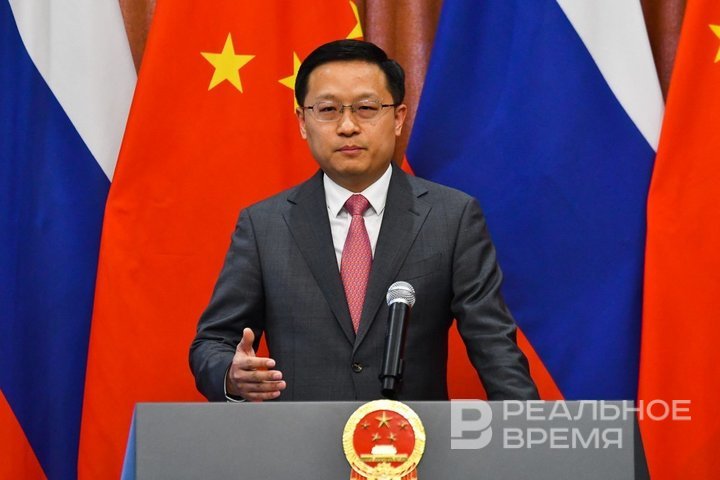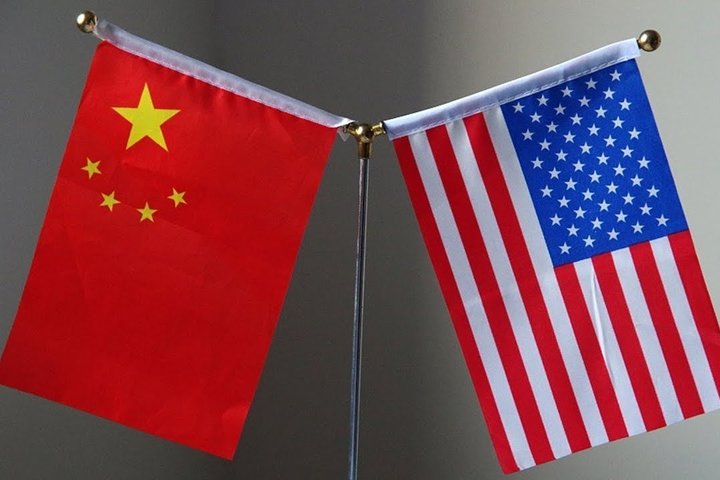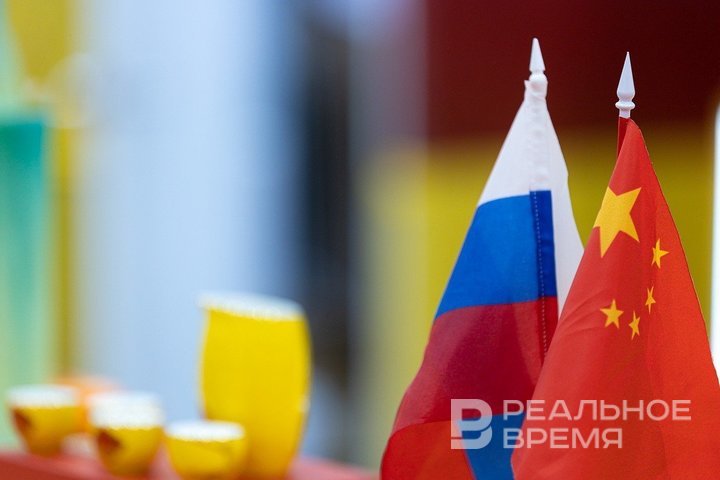One-sided dictates break the rules! So-called reciprocal tariffs by U.S. lead nowhere
China’s Consul General in Kazan, Xiang Bo, comments on escalating trade war between China and the US

The United States have recently announced the introduction of a so-called “reciprocal tariffs” plan, thus unleashing a global trade war. These actions by the American side provoked a strong protest from the international community. China immediately took countermeasures and, together with the international community, opposed the tariff dictates and arbitrariness of the United States, firmly defending multilateralism and economic globalisation. Xiang Bo, Consul General of the People's Republic of China in Kazan, discusses the situation in a column for Realnoe Vremya.
US 'reciprocal tariffs' seriously undermine the rules-based multilateral trading system
The so-called reciprocal tariffs of the United States cause serious damage to the legitimate rights and interests of all countries. As a key criterion for determining the rates of so-called mutual tariffs, the American side takes the ratio of its trade deficit with a particular country (region) to the volume of exports of that country (region) to the United States. This method of calculation has no reasonable and legitimate grounds and contradicts the basic economic rules.

The United States' claim that this step is aimed at correcting its “losing” status in international trade is completely untenable. The so-called U.S. loss theory ignores the balance of interests achieved during years of multilateral trade negotiations, as well as the fact that the United States has long benefited enormously from international trade.
Under the pretext of “reciprocity”, the American side is pursuing a policy of force and unilateral dictatorship in the trade and economic sphere in order to serve its hegemonic ambitions, while sacrificing the legitimate interests of all countries of the world.
The so-called reciprocal tariffs of the United States seriously undermine the rules-based multilateral trading system. For a long time, the multilateral trading system, the core of which is the World Trade Organisation, has served as the foundation of international trade. It not only reduces trade frictions, but also contributes to the prosperity and stability of the global economy. The “reciprocal tariffs” imposed by the United States represent nothing more than a rupture of this mutually beneficial system, an attempt to undermine the existing international economic order and put the interests of the United States above the public interests of the international community. This will not only fail to solve the problem of the US trade deficit, increase the competitiveness of industry and solve other internal problems of the United States, but will also seriously undermine the normal international economic and trade order, jeopardising the security and stability of global production and supply chains.
“China doesn't want a trade war because there are no winners in it”
In response to the so-called reciprocal U.S. tariffs, China immediately took the necessary retaliatory measures, firmly defending its legitimate rights and development interests. China's position on the trade war is consistent and clear: China does not want a trade war because there are no winners in it, but at the same time, China is not afraid of it. Due to that the United States has imposed so-called reciprocal tariffs, China has inevitably taken countermeasures. The United States must immediately correct its misguided approach and strengthen dialogue and engagement with China and other stakeholders to properly resolve trade and economic differences.
China will continue to promote openness to the outside world at a high level. As the world's second largest economy and the second largest consumer goods market, China, despite any changes in the international environment, will only expand its openness to the outside world, consistently expand institutional openness in the areas of rules, regulation, governance and standards, implement high-level trade and investment liberalisation policies, and create a first-class business environment based on market principles, regulated by law and consistent with international standards, to share development opportunities with the world and achieve mutual benefits.
“China is ready to continue contributing to the development of the global economy together with Russia”
China firmly supports the multilateral trading system and advocates resolving trade differences through dialogue and consultation, opposing all forms of unilateralism and protectionism. China is ready to cooperate with all parties to adhere to the concepts and rules of the World Trade Organisation, continue to promote the liberalisation and simplification of trade and investment, increasing “the pie” of overall development by promoting high-level openness. Multilateralism is an inevitable choice to solve the complex problems facing the world, and economic globalisation is an unstoppable historical trend.

China is ready to continue contributing to the development of the global economy together with Russia. In 2024, the volume of bilateral trade between China and Russia reached a record $244.8 billion, maintaining a favourable trend of steady quantitative and qualitative growth. Sino-Russian cooperation is capable of overcoming any external obstacles and pressure, maintaining its course and not losing momentum, regardless of external interference and suppression.
If we compare Sino-Russian cooperation with a high-speed train, then although the scenery outside the window and weather conditions may change, the direction of movement and the confident rhythm of moving forward remain unchanged. China and Russia will further deepen strategic cooperation, jointly defend the multilateral trading system, the core of which is the World Trade Organisation, and jointly promote economic globalisation towards greater openness, inclusiveness, accessibility, and balance.